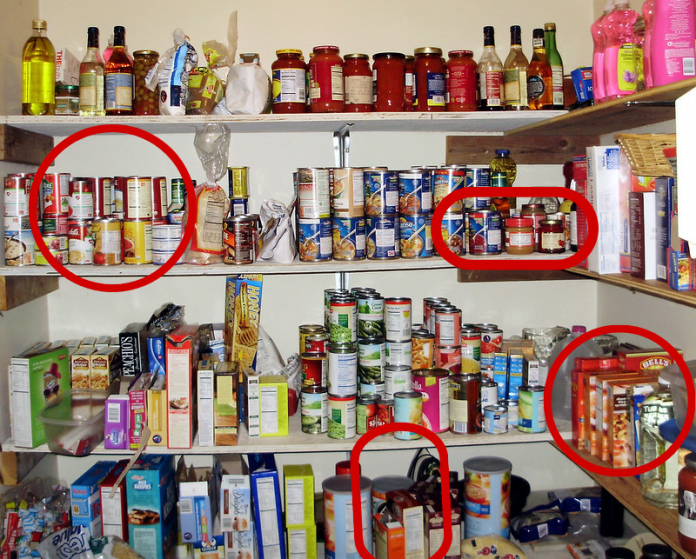Your stockpile or pantry for emergencies may have gotten off to a good start already. However, it’s also possible that you’re missing some simple things that would be excellent additions.
Water, dried beans, and canned products are certain necessities. But for some people, that’s the end of the list.
If that applies to you, you are missing out on the opportunity to keep a wider selection of supplies and food on hand for when you need them.
I have compiled a list of items often overlooked when creating an emergency pantry. Each of these things can increase your survival by providing calories, nutrition, and variety. They also last a very long time.
Rolled Oats
Oats are a good source of fiber, protein, vitamin B6, a number of minerals, and antioxidants. Oats are very simple to prepare and preserve.
Rolled oats have a shelf life of roughly 30 years if kept in an airtight container in a cold, dry environment. This is a fantastic item to have in large quantities in your pantry because of its nutrition, simplicity in preparation, and long shelf life.
Yeast
It’s great to have yeast in your pantry so that you can prepare a variety of bread. It should last at room temperature for several years if packaged airtight.
The yeast should be kept in individual packets to keep any leftover portions airtight and sealed.
Related: 17 Vintage Homesteading Tools to Buy at Garage Sales
You can buy single packets or break up a bigger one into smaller pieces and vacuum seal each one separately.
In terms of nutrition, yeast is amazing. It includes nutrients like calcium, magnesium, zinc, potassium, fiber, vitamin Bs, and protein.
Dried Veggies
Having canned fruit and vegetables on hand is okay. However, just like dehydrated fruits, dehydrated vegetables have a long shelf life.
For example, dehydrated corn is good for 10 years, and carrots last up to 20 years. And they tend to be more flavorful.
Lentils
Whole dried lentils have a shelf life of up to 5 years if stored in an airtight container. This makes it a fantastic product to have in your pantry. They also have a lot of protein, which makes them even more appealing.
Related: The $1-a-pound Food That Every Survivalist Should Stock Up On
Jerky
People frequently picture beef or venison when they think about jerky. But a variety of other proteins, including chicken, turkey, salmon, and alligator, can also be converted into jerky. And jerky is a quick source of protein on any given day.
It can be bought or made by hand. If you have a dehydrator, simply follow the directions to dehydrate your choice of protein.
Or, you can use the oven by slicing the protein, marinating it for up to 24 hours, drying the protein on a paper towel, and then hanging the protein strips on the wire rack in the oven before the oven is preheated.
Make sure to have a drip pan below to catch anything that drips.
Preheat the oven anywhere from 170 to 200 degrees. Check the meat in 3 hours, but it could take up to 8 hours.
Quinoa
Quinoa has been found in many pantries since the ancient Incas. With 8 grams of protein and 8 essential amino acids in just 1 cup, this grain alternative is nutrient-dense.
Related: You Could Get Arrested If You Hoard These 10 Things
The uncooked quinoa will last for at least six months if you store it in an airtight container.
Dried Fruit
Dates and raisins are just two examples of dried fruit you should keep on hand. They are easy to get and fairly priced. But you can turn many other fruits into dried fruit for the pantry. Fruits such as figs, cranberries, bananas, cherries, mango, plums, blueberries, apricots, and more can be easily dried in a dehydrator or oven.
Check that the container you use to store these dried fruits is airtight. They can last up to five years on the shelf if properly stored.
Coconut Oil
Unlike butter and certain other cooking oils, coconut oil has a high tolerance for heat, making it a great option to have on hand.
When not heated, it remains in a solid form and has a shelf life of at least 2 years if stored properly in a dry and cool area.





This is good info mom taught us back in the depresion thanks for the reminder